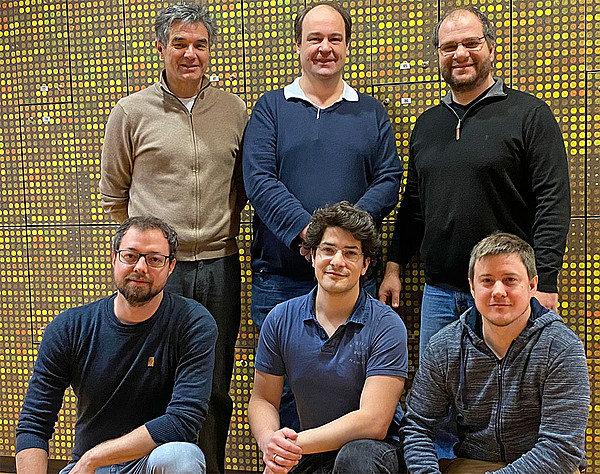Most bacterial pathogens produce so-called OMVs – outer membrane vesicles, which are liberated from the bacterial surface. Researchers at the University of Graz have managed to identify for the first time how the pathogens benefit from this energy-intensive process: it enables the microorganisms to adapt faster to the adverse conditions in the host and evade the defence mechanisms of the immune system. The findings of this study will be published in the February edition of the prestigious journal Cell Host & Microbe, and have just become available online.
Franz Zingl from the Institute of Molecular Biosciences at the University of Graz, a doctoral student working with Stefan Schild, focused on OMVs derived from Vibrio cholerae, the causative agent of cholera. Between epidemics this bacterium survives in the aquatic ecosystem and has to cope with very different conditions to those in a host organism. To ensure adequate nutrition, it has numerous uptake systems on its surface, including outer membrane porins such as OmpT.
Yet once inside the human body, the bacterium would absorb bile salts and antimicrobial peptides through this porin, which would kill it. “So the bacterium shuts down OmpT synthesis upon oral ingestion by the human host. But previous studies could not clarify how the bacterium gets rid of OmpT already present in the surface,” explains Stefan Schild. In this study the researchers were able to show that when the pathogens enter the host, they activate outer membrane vesiculation. In this way they are able to rapidly rid themselves of unfavourable surface components like OmpT, which are no longer required. Similarly, they “dispose” of so-called lipopolysaccharides – LPS for short –, which are integral parts of the outer membrane and replace it efficiently by newly synthesised modified LPS variants. Bacterial surfaces built by such modified LPS constitutes an effective barrier against the body’s immune system responses.
“This vesiculation, i.e. the shedding of the OMVs, gives the pathogens a competitive advantage in colonising the host,” explains Schild in summary. The process is set in motion when the bacteria face iron limitation, because they – like humans – need this trace element for all their biological processes. One defensive strategy our body uses is to bind in the iron so that it is not available to harmful invaders, which causes stress in the bacteria.
Similarly, there is also some evidence that contact with small doses of antibiotics or disinfectants can also stimulate the shedding of outer membrane vesicles. “Residues of germicidal medications in water or foodstuffs are therefore a problem, because they can give pathogens a fitness advantage along adaptation processes,” as the molecular biologist maintains.
The mechanisms that the Graz team has been studying in Vibrio cholerae are generally valid for almost all bacterial pathogens – including Salmonella, Pseudomonas and Neisseria, for example. Their findings may also be relevant for new treatments to combat infectious diseases: the researchers are now looking for a substance that will inhibit vesiculation. This could enable the body's own immune system to deal with the invaders more easily. At the same time – in contrast to the use of antibiotics – the natural microbiome in the human digestive system would remain unaffected.
This research programme is part of the university’s “BioHealth” Field of Excellence and was funded by the Austrian Science Fund (FWF) and the BioTechMed Graz project “Secretome”.

